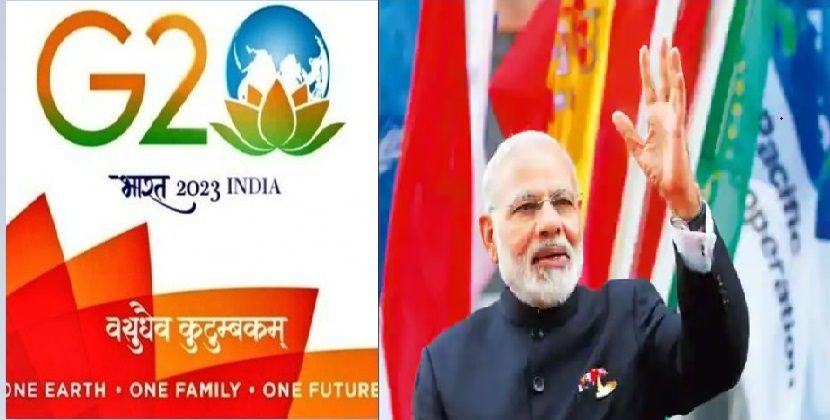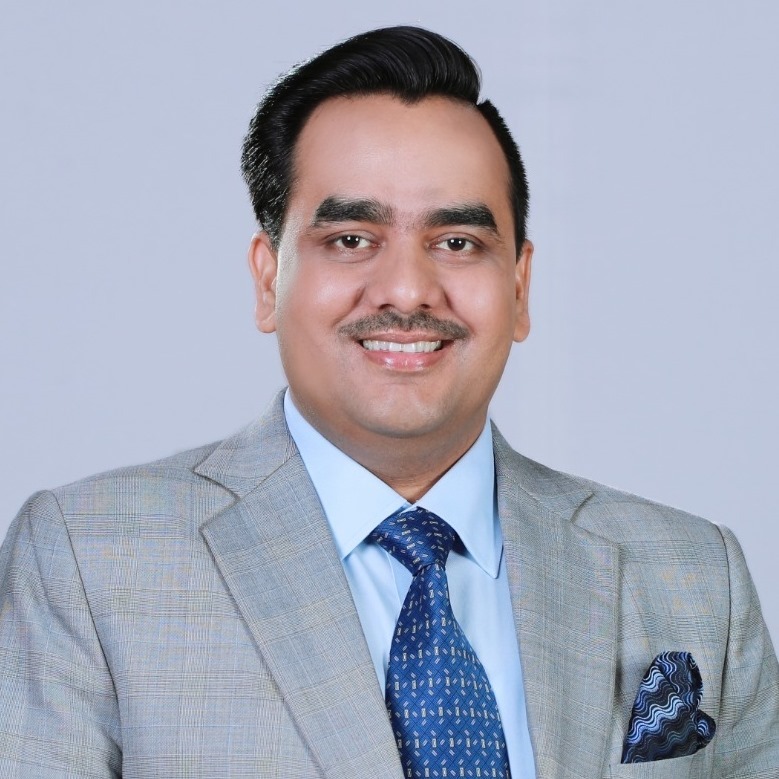
India marches on to the global infinity
A tweet posted by External Affairs Minister S. Jaishankar a few days ago is making headlines. This tweet refers to the Foreign Minister’s trip to Italy, G-20 Foreign Ministers meeting, Quad Foreign Ministers meeting, IBSA handover, India-Europe Conclave, Raisina Dialogue and 33 bilateral meetings. The remarkable thing is that all these important events related to global diplomacy were not only organised in a short span of a week, but also successfully carried out. The title of the tweet “A busy week for Indian diplomacy” aptly expresses this.
The successful execution of these global events, which were part of a long and extensive list of international engagements, was presented by the foreign minister with great humility as part of his responsibility. In fact, from a global diplomacy perspective, the message it sends is much larger and more significant. In recent days, the world has witnessed a major shift in alignment with global institutions, and India’s influence has steadily increased. In every small and large crisis, the world looks hopefully to the emerging India, which is becoming increasingly important in global diplomacy.
There is no doubt that recent activities in foreign policy have increased India’s influence in the world. The G-20 presidency is proving to be an important milestone in this hyperactive diplomacy as India will host hundreds of international meetings next year. Meanwhile, India has also forged new partnerships, be it the International Solar Alliance or the Indo-Pacific Ocean Initiative. On the one hand, India is a partner in the Group of Four with the United States, Australia, and Japan, but despite significant tensions with China, we also participate in the Shanghai Cooperation Organisation (SCO). We have good relations with all developed economies, including Western countries, but despite intense pressure on Ukraine, we have not criticized our long-time friend Russia. Instead, like a true friend, we have opposed Western sanctions against Russia.
That is why even Russia’s staunch opponent, the United States, is impressed by our commitment and determination to put national interests first. During the G-20 foreign ministers meeting in Delhi, the US State Department openly acknowledged that India has tremendous moral strength and honesty. It is true that we do not need validation for our strengths, but one cannot deny that few countries have found such respect in the foreign policy of the US, which is seen by many as hegemonic.
Russian Foreign Minister Sergei Lavrov has already officially stated that no other country in the world enjoys such status as India. Russia has not only supported friendship with India’ but also its important role in regional organisations, from the United Nations to regional organisations. In Russia’s view, India has become an important pillar of the multi-centric world. It is no coincidence that many countries around the world, not only America and Russia, expect India to help resolve the Ukraine conflict. This means that the position occupied by America and Russia in the last century is now being claimed by India without any opposition.
In global diplomacy, a nation’s influence and acceptance of its supremacy is determined not only by its economic, military, political and social status, but also by the leadership qualities of the country in question. Political leadership plays a crucial role in shaping a nations image at the global level, from establishing international or bilateral relations to determining the direction of those relations. In this regard, the last seven to eight years have proved transformational for India. During this period, India has reached new heights on the world stage, with Prime Minister Narendra Modi’s transformative role being undoubtedly significant. Since he took office in 2014, positive changes have been observed on the global diplomatic front, which have steadily improved India’s image.
The Prime Minister’s diplomatic activism is the reason for India’s international prominence, which he has demonstrated over the last seven to eight years. No other Indian head of state has made more foreign trips than Prime Minister Narendra Modi. In his first four years as Prime Minister, Narendra Modi has already traveled to 84 countries. During the Corona era, the Prime Minister’s activism simultaneously defeated China and Pakistan. Since the abolition of Article 370 in Kashmir, Pakistan has challenged India’s image internationally, but today Pakistan is on the brink of bankruptcy due to its own internal crises. Pakistani Prime Minister Shahbaz Sharif himself is seeking talks with India to get out of this crisis. China is so isolated in the world that it has no choice but to improve its relations with India.
In this regard, America’s prediction that 2023 will be the year’ of India seems to be coming true. Our efforts to end the war between Russiaand Ukraine may facilitate this journey. In my estimation, our claim to permanent membership of the United Nations Security Council will become even stronger if we succeed in this mission. Apart from China, almost the whole world is singing ‘Vande Mataram’ today. It is heard from many platforms that the way to solve all challenges in the world today is through India. If the world really believes this, what is the relevance of the Security Council without us? China’s veto could be an obstacle, but after the international humiliation during the corona virus era, it remains to be seen how much moral courage Beijing has left to oppose our membership bid.
On the other hand, India was invited to the G-7 conference in Germany as a guest country. Since then, there have been heated discussions about Indias admission to this organisation of the ‘seven richest countries in the world. If this happens, India’s status and influence will certainly increase.
To achieve this, however, the organization must change its name back to G-8 after Russia, which was excluded from the group, was renamed G-7.
Nevertheless, the goal is clear. Our goal is to be a world leader, and the remarkable thing is that not only are we moving confidently towards this goal, but the world is also accepting our growing stature. It is certain that the time ahead will be busier than ever for Indian diplomacy toward this goal.


















